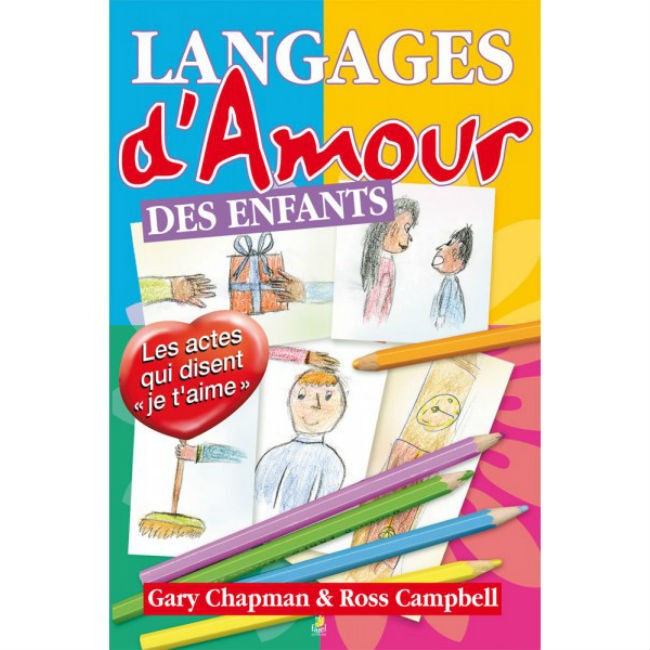Do you express love in language your child understands?
Just like an adult, each child expresses and perceives love through a dominant communication style. The problem arises when parents and children do not speak the same “language”. But a language can be learned. Mothers and fathers can use the information in this book to help them meet the emotional needs of their children. In The Languages of Love, Gary Chapman helped many couples experience a more fulfilling relationship by showing them how to speak each other's languages. In Love Languages of Children, Chapman teams up with Ross Campbell, the author of How to Really Love Your Child, to help parents speak their children's love language. You can learn to speak your child's love language fluently! Discover its main language:
- Empowering words
- Quality moments
- Gifts
- Services provided
- Physical touch
Learn how to effectively communicate to your child feelings of respect, affection and commitment that will allow them to live with the assurance of your unconditional love. Gary Chapman has worked as a marriage counselor for years. He leads numerous seminars for couples across the United States. His book The Languages of Love (Éditions Farel) has met with great success among French-speaking readers. Ross Campbell is the author of numerous works on children, several of which have already been published in French. Professor of pediatrics and psychiatry at the Tennessee Medical School, he organizes numerous seminars on parent-child relationships.
Contents :
- Preface
- Part one: Love languages
- Love as a foundation
- Physical contact
- Empowering words
- Quality moments
- Gifts
- Services provided
- Part Two: Love in Action
- Discover your child's love language
- Discipline and love languages
- Teaching and love languages
- Anger and love
- Speaking love languages in a single-parent home
- Speaking love languages as a couple
- Epilogue
- Take advantage of opportunities
- Part Three: Reflection Guide
- Reflection guide for parents or couples and discussion groups

